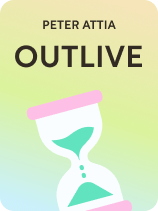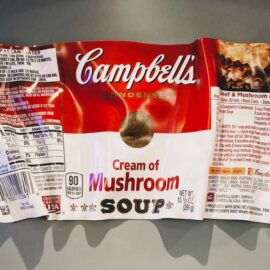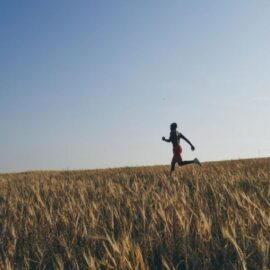

This article is an excerpt from the Shortform book guide to "Outlive" by Peter Attia. Shortform has the world's best summaries and analyses of books you should be reading.
Like this article? Sign up for a free trial here.
What are your blood sugar levels? Why is it important to know this if you want to figure out the right amount of carbs you should include in your diet?
According to Peter Attia, carbs are something you need to watch if you want to lengthen your lifespan. Too many carbs in your diet can lead to deadly chronic diseases. So, you need to get a handle on how your body processes carbs in order to determine the right amount for you.
Read more to understand how carbs affect the body and long-term health and to figure out how much your diet should include.
Peter Attia on Carbs
According to physician Peter Attia, carbs make up too much of most people’s diets. The body uses carbohydrates as its main source of energy. But, when you consume too many, they raise blood glucose and trigger the overproduction of insulin. This is because your body converts carbohydrates into glucose more readily than any other food group.
If your cells are overloaded with elevated insulin for too long, they become less responsive to insulin and absorb even less glucose—a condition called insulin resistance. Insulin resistance directly causes four chronic diseases: heart disease, cancer, neurodegenerative diseases (like Alzheimer’s and dementia), and type 2 diabetes.
That said, Attia notes that carbohydrates in moderation are healthful—and they’re healthful for some people more than others. For instance, although it would be atypical, you may find that cutting carbohydrates out of your diet doesn’t help you burn fat or reduce your blood sugar.
(Shortform note: Carbohydrates are particularly healthy for endurance athletes, who need a high-carb diet to maintain their physical performance. Unlike most people, endurance athletes nearly deplete the glycogen stores in their liver and muscles, the human body’s primary source of short-term energy, on a regular basis. To them, carbohydrates are valuable for the same reason they’re unhealthy for others: The body converts them directly into vast amounts of glucose, which can replenish these glycogen stores. Experts assert that most athletes don’t eat enough carbohydrates—a 175-pound endurance athlete needs upwards of 3,800 calories every day just from carbs to replenish their glycogen.)
The only way to know for sure how your unique metabolism processes carbohydrates is to experiment with your diet until you’ve found one that helps you reach your health goals.
To help you do this, Attia recommends using a continuous glucose monitor (CGM), an implantable device that allows you to stay aware of your blood sugar levels at all times. Spikes in blood glucose after you’ve eaten something high in carbohydrates indicate times when your body will produce extra insulin in response. By observing what quantities of specific foods cause your glucose (and insulin) to spike, you can learn to avoid or reduce your intake of those foods in the future. Over time, this helps you keep your blood glucose low and avoid insulin resistance.
(Shortform note: CGMs are generally slightly less accurate than traditional blood glucose meters, which read blood drawn from your finger. This is because they don’t directly measure blood sugar. Rather, they measure the amount of glucose in your body’s interstitial fluid—the plasma-like liquid that fills your body outside of your blood vessels—and use that to estimate blood glucose. This inaccuracy makes CGMs more suitable for getting a vague sense of what foods are good for your metabolism rather than determining your exact glucose levels for medical purposes (like helping your doctor know how much supplemental insulin to prescribe).)

———End of Preview———
Like what you just read? Read the rest of the world's best book summary and analysis of Peter Attia's "Outlive" at Shortform.
Here's what you'll find in our full Outlive summary:
- A guide on how to extend the active and fulfilling part of your life
- How to circumvent the mental and physical decline that often comes with age
- The one chronic condition that can cause four of the most deadly diseases






